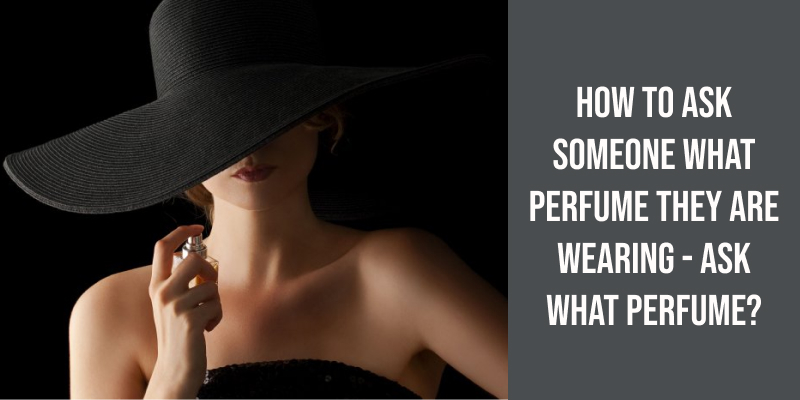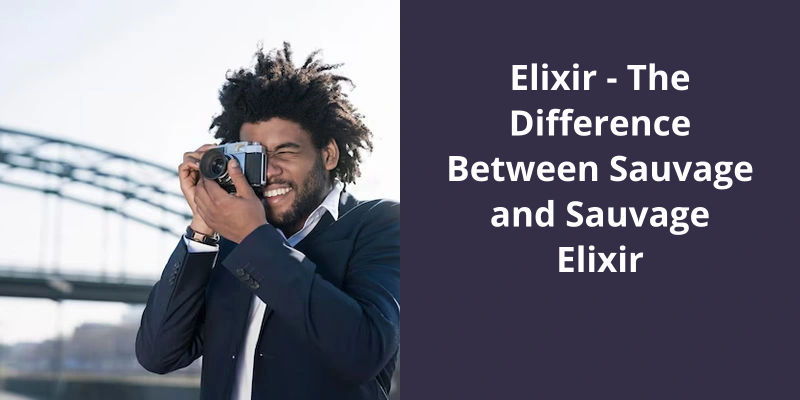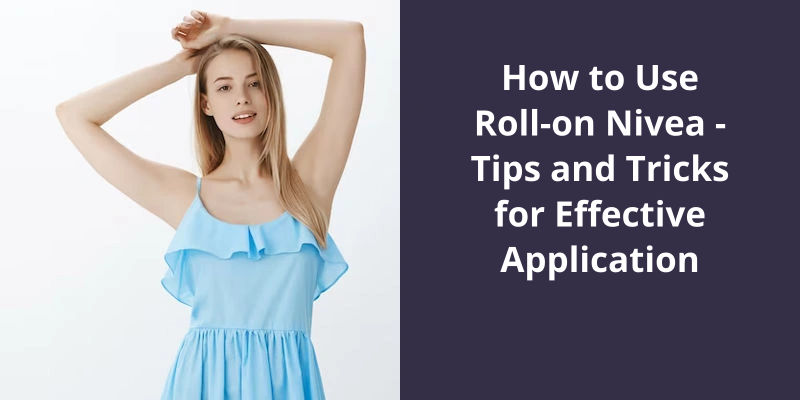When you wish to ask someone about the perfume they are wearing, it’s important to approach them with tact and politeness. Start by genuinely complimenting them on their fragrance – this can be as simple as stating that you find their perfume appealing. Following your compliment, you can ask them directly about the perfume they are wearing. Try to keep your question light and casual to avoid making the other person feel uncomfortable. For example, you might say, “I couldn’t help but notice your wonderful scent. May I ask what perfume you’re wearing?” By posing the question in this manner, you show respect for their personal space while expressing interest in their perfume choice.

How Do You Ask Someone About Their Perfume?
- The Art of Curiosity: Initiating a conversation about someone’s fragrance is an art that begins with genuine curiosity.
- Compliment and Connect: Start by complimenting the unique scent they’re wearing, fostering a connection through shared appreciation.
- Casual Approach: Approach the topic in a relaxed manner, creating an environment where they feel comfortable sharing.
- Evoke Memories: Inquire about the fragrance’s origin by asking if it holds any special memories or associations for them.
- Express Interest: Show sincere interest in learning more about their scent preferences, demonstrating your appreciation for their individuality.
- Fragrance Families: Gently steer the conversation towards fragrance families, discussing whether they prefer floral, woody, oriental, or fresh scents.
- Note Exploration: Ask about their favorite fragrance notes, whether it’s the sweetness of vanilla, the vibrancy of citrus, or the depth of musk.
- Suggestive Questions: Pose open-ended questions like “What drew you to this scent?” or “Does your fragrance choice change with seasons?”
- Share Your Own: Share your own experiences with scents and why you’re intrigued by the world of perfumery.
- Wrap Up Thoughtfully: Conclude the conversation with a thoughtful remark, showing gratitude for their openness and the insight they’ve shared.
Is It Weird to Ask Someone What Perfume They Are Wearing?
Absolutely not. Complimenting someone on their fragrance is perfectly acceptable way to start conversation. It’s a polite gesture that shows you’re interested in the person and their personal style. It’s also great way to break ice and start conversation.
Make sure to ask what fragrance they’re wearing and thank them for sharing the information. This will show that you’re genuinely interested in person and their personal style. It’s also important to remember that everyone has different tastes and preferences when it comes to fragrances, so it’s important to be respectful of their choices.
What Questions Should I Ask a Perfumer?
Engaging with a perfumer offers a captivating opportunity to dive into the intricate world of fragrances. Here are several questions to consider asking:
- What Inspires Your Creations? Discover the sources of inspiration behind their perfumes, whether it’s nature, memories, or emotions.
- How Do You Begin the Creation Process? Learn about their creative process, from initial concept to blending and refining.
- What Sets Your Fragrances Apart? Inquire about the unique elements that make their perfumes distinct in a crowded market.
- Can You Explain the Notes in This Perfume? Ask for a breakdown of the various scent notes in a specific fragrance and how they interact.
- How Do You Balance Artistry and Commercial Appeal? Explore how they maintain a balance between artistic expression and meeting consumer preferences.
- What Challenges Do You Face in Perfume Creation? Understand the hurdles they encounter during formulation and how they overcome them.
- Are There Cultural or Historical Influences in Your Work? Discuss whether they draw inspiration from specific cultures or historical periods.
- What’s Your Favorite Scent Memory? Encourage a personal touch by inviting them to share a memorable scent-related experience.
- How Do You Recommend Choosing a Signature Scent? Seek advice on how to navigate the vast world of fragrances and find a scent that resonates.
- What Trends Do You See in Perfumery? Gain insights into current and future trends in the fragrance industry.
- Can You Describe Your Most Challenging or Rewarding Creation? Prompt them to share a story about a perfume that posed unique difficulties or brought immense satisfaction.
- How Do You Select Ingredients? Explore their ingredient selection process, including the criteria they use to choose high-quality components.
- What Advice Do You Have for Aspiring Perfumers? If you’re interested in entering the field, ask for guidance on starting a journey in perfumery.
- How Do You Evoke Emotions Through Fragrance? Discuss how they capture emotions and memories through scent composition.
- What Do You Envision for the Future of Your Perfume Brand? Conclude by inquiring about their long-term aspirations and upcoming projects.
These questions will not only deepen your understanding of their craft but also foster an engaging and enlightening conversation with a perfumer.
What Are Good Ways to Describe Perfume?
Describing perfume requires a delicate blend of vivid language and sensory imagery. One might start by invoking the scent’s character, whether it’s opulent and luxurious or light and airy. Aromas can be likened to a symphony of notes, ranging from top notes that greet you like a sparkling introduction to heart notes that unfold like a captivating melody. These notes might be compared to a bouquet of flowers, each one contributing its unique essence to the composition. The perfume’s evolution over time can be depicted as a journey, with the initial burst of freshness giving way to deeper and more complex undertones. Analogies to nature, such as a forest after rain or a field of blooming flowers, can evoke a sense of familiarity.
Texture also plays a role in describing perfume; words like “velvety,” “silky,” or “crisp” can evoke tactile sensations that mirror the olfactory experience. Colors can be evoked through the perfume’s essence as well—golden hues for warm and rich fragrances, and ethereal shades for lighter ones. The emotional response to a scent is another facet to explore; a perfume might evoke feelings of nostalgia, sensuality, or invigoration. References to exotic locales or cultural references can infuse a sense of wanderlust into the description.
Comparisons to music can beautifully capture the rhythm and harmony of a perfume’s notes, just as the cadence of a melody unfolds. An emphasis on the memories or associations a scent conjures can make it more relatable and personal. Descriptive words like “enveloping,” “captivating,” or “intimate” can convey the way a perfume embraces the wearer. By skillfully intertwining these elements, a captivating description of perfume can be crafted, enabling readers to envision its essence and allure.
Is It Perfume Wearing or Using?
The terminology used to describe the application of fragrance can vary based on personal preference and cultural context. Both “wearing” and “using” are commonly used to refer to the application of perfume, but they can carry slightly different connotations.
“Wearing” perfume suggests a more intentional and personal act. It implies that the fragrance becomes a part of the person’s identity and style, enhancing their overall presence and leaving a lasting impression on those around them.
“Using” perfume is a more functional description. It implies the application of the fragrance as a product to achieve a desired effect, whether that’s to smell pleasant, mask odors, or set a particular mood.
Ultimately, both terms are widely accepted and can be used interchangeably. The choice between “wearing” and “using” may depend on the context in which you’re discussing fragrance and the nuance you want to convey.
How Do You Sell Perfume to Customers?
When it comes to selling fragrances, it’s important to make sure that customers are aware of the product and that they’re given the opportunity to experience it. One way to do this is to ask customers if they’d like to smell fragrance. This can be done in a friendly and inviting manner, letting them know that the fragrance is of a high quality and at a low, fair price. It’s also important to hand out scent strips to every customer, so that they can take fragrance home with them and experience it further.
This can be done by spraying the store frequently with the fragrance, so that customers can get a sense of the scent before they even approach the counter. It’s also important to have talking points at key areas in store, such as near entrance or near checkout counter. This will help to draw attention to the fragrance and give customers more information about it. This will help to encourage customers to purchase product and will help to increase sales.
What Do You Call a Person Who Is Obsessed With Perfume?
In the world of PAIRFUM, a CognoScenti is a person who loves perfume and has a deep understanding of the art of fragrance. They’re connoisseurs who can distinguish between good and bad fragrance, and can identify subtle nuances of scent. They’re passionate about perfume and have a deep appreciation for the craftsmanship and artistry that goes into creating a unique and beautiful scent.
They can tell difference between synthetic and natural scent, and can recognize nuances of scent that make it unique. They’re also knowledgeable about the history of perfume, and can tell stories about the origins of certain fragrances. They’re also able to identify different types of fragrances, such as floral, woody, and oriental, and can explain differences between them. CognoScenti are also able to recommend fragrances to others based on their individual tastes and preferences.
How Do You Tell Someone to Wear Less Perfume?
Asking someone to avoid using fragrance can be a delicate situation. It’s important to be courteous and respectful when making such request.
“Im sorry to ask, but Im really sensitive to scents and I think Im reacting to something youre wearing. Would you mind avoiding using that perfume at work?”
“Im sorry to bother you, but Im really sensitive to fragrances. Would you mind not wearing any perfume or cologne when were together?”
It’s also important to be mindful of the other persons feelings and to be respectful of their decision.
Can You Tell an Employee Not to Wear Perfume?
Fragrance sensitivity is a growing concern in the workplace, as more and more people are becoming sensitive to the chemicals used in fragrances. Fragrance sensitivity can range from mild to severe, and can cause variety of symptoms, including headaches, nausea, dizziness, and difficulty breathing. In some cases, the symptoms can be so severe that they interfere with an employee”s ability to perform their job.
Under Americans with Disabilities Act (ADA), employers are required to make reasonable accommodations for employees with disabilities. This includes accommodating employees with fragrance sensitivity. Employers should take steps to reduce use of fragrances in workplace, such as providing fragrance-free products, prohibiting use of fragrances in workplace, and providing air purifiers to reduce amount of fragrance in air. Employers should also provide education to employees about the potential health risks associated with fragrances, and provide resources to employees who’re sensitive to fragrances.
In addition to making reasonable accommodations, employers should also be aware of potential legal implications of failing to accommodate employees with fragrance sensitivity.
By doing so, employers can also protect themselves from potential legal liability.
Conclusion
Remember to offer your compliments sincerely and maintain a friendly tone. People often appreciate the positive attention and are generally willing to share information about the scents they’re wearing.In summary, asking someone about the perfume can be a friendly and engaging conversation starter as long as you approach it with respect, sincerity.





